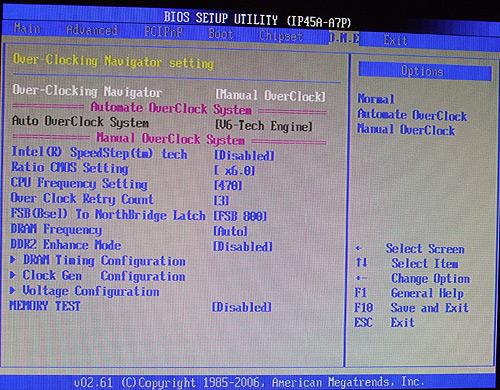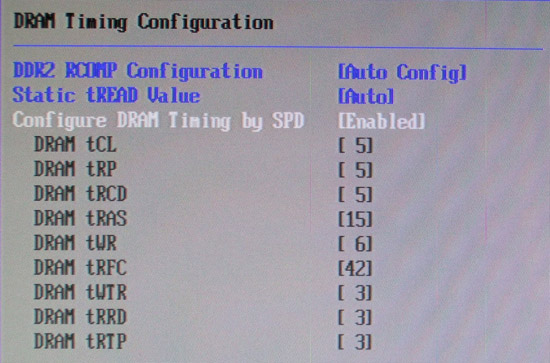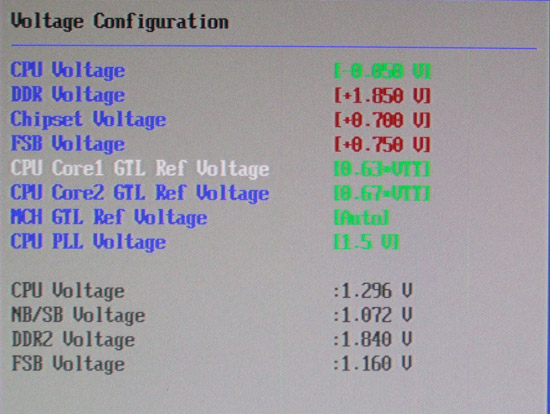The BIOS controls how the motherboard
communicates with all the peripherals connected to it, and is a crucial
component for any good well rounded motherboard. PCSTATS is only going to
highlight the tweaking features in the BIOS, so you'll know what to expect.

Biostar gives you full multiplier access (as much as
Intel allows). The FSB can be adjusted between 333-800 MHz in 1 MHz increments
and there are whole slew of memory dividers. The Overclock Retry Count is useful
for painless overclocking recovery, if the system fails to boot, it will go back
to default settings to boot up, but the last entered settings in the BIOS will
still be there. It makes overclocking fun, whereas with the traditional method
you have to recall every setting you entered after the CMOS is reset.

Biostar gives you the regular memory timing
adjustments from CAS Latency to RAS to CAS Delay and RAS Precharge.

The board has good voltage controls, and
colour codes the choices green/yellow/red based on the danger. DDR goes 1.85
above stock, chipset 0.7V above, and FSB 0.75 above for example. That should be
enough for the average overclocker.
Prelude to Benchmarks
The details
of how the Biostar TPower I45 motherboard test system was configured for
benchmarking, including the specific hardware, software drivers, operating
system and benchmark versions are indicated below. In the second column are the
general specs for the reference platforms this Intel P45 Express based system is
to be compared against. Please take a moment to look over PCSTATS test system
configurations before moving on to the individual benchmark results.
 |
| PCSTATS Test System Configurations |
|
|
